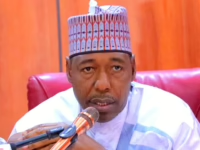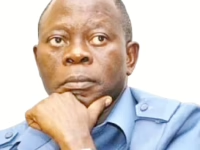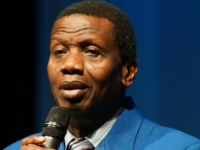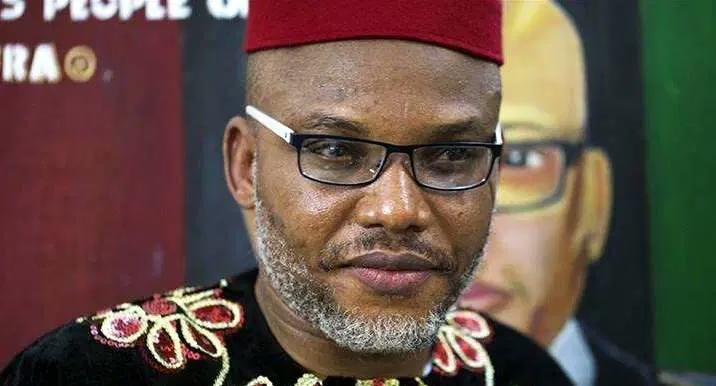Nnamdi Kanu, the detained leader of the proscribed Indigenous People of Biafra (IPOB), has formally appealed to the World Medical Association (WMA) concerning severe health complications and the lack of adequate medical treatment while in the custody of Nigeria’s Department of State Services (DSS).
In a letter dated October 3, 2025, authored by Kanu’s international legal representative, Bruce Fein, and addressed to WMA President Dr. Jacqueline Kitulu, Kanu expressed grave concerns over the deterioration of his health due to insufficient medical care during his prolonged detention.
The correspondence, shared with LEADERSHIP, reveals that Kanu has been held in solitary confinement within a Nigerian detention center for over four years without trial, following his arrest in Nairobi, Kenya, in June 2021.
Copies of the letter were also sent to the Registrar of the Federal High Court in Abuja, the DSS, the Medical and Dental Council of Nigeria, and the Nigerian Medical Association (NMA). The letter described Kanu’s condition as reaching a “critical, life-threatening stage.”
Kanu’s petition implores the WMA to collaborate with the NMA to guarantee that he receives “the highest standard of professional medical care” and that his healthcare providers can operate free from any form of intimidation or obstruction.
Additionally, Kanu requested that the WMA, either directly or through the NMA, investigate alleged discrepancies in his medical records maintained during his detention by the DSS.
The letter also calls for safeguards to protect independent medical professionals from potential reprisals for delivering care to Kanu.
He demanded the immediate publication of the NMA medical team’s report dated September 22, 2025, which the Federal High Court had mandated to be submitted within four days. Kanu cautioned that any postponement might lead to the formation of a substitute panel, thereby compromising the integrity of the medical findings.
According to the letter, Kanu’s health issues began shortly after his arrest in Nairobi. Upon arrival at Jomo Kenyatta International Airport, he was detained by masked agents and confined in a small room for eight days. During the initial five days, he was reportedly deprived of food, water, and essential medications, resulting in respiratory distress and physical weakness.
On the fifth day, when his condition worsened, a doctor was called. His blood pressure was dangerously elevated, and he was administered a 40mg dose of Amlodipine along with an unidentified red liquid.
Kanu’s treatment in Kenya left him significantly debilitated by the time he was transferred to Nigeria. Subsequent blood tests at the DSS facility in Abuja revealed a severe potassium deficiency, prompting medical interventions that failed to stabilize his condition. Whenever potassium supplements were halted, his levels plummeted back to dangerous lows, a fact corroborated by a South African laboratory.
He further alleged that one of the doctors assigned to his care manipulated his test results, falsely recording normal potassium levels despite evidence to the contrary.
Under what Kanu described as substandard medical supervision, he continued to suffer from symptoms including frequent nosebleeds, fainting episodes, chest discomfort, headaches, and swelling in his feet.
Despite over 50 blood tests conducted during his detention, no significant improvement was noted under the care of the assigned medical team.
Kanu commended Emeritus Professor Martin Aghaji, a distinguished surgeon, for his eventual intervention, which helped stabilize his health. He stated, “Without Professor Aghaji’s involvement, my condition would have worsened irreversibly.”
Professor Aghaji reportedly identified multiple health issues affecting Kanu’s liver, kidneys, bladder, prostate, and brain white matter, alongside sleep apnea and severe tinnitus.
Fein emphasized that tinnitus poses a particularly serious threat, as it disrupts Kanu’s sleep, aggravates hypertension, intensifies chest pain, and significantly raises the risk of stroke, collapse, or sudden death.
The letter highlighted that the combination of sleep deprivation, high blood pressure, organ strain, and potassium imbalance places Kanu in immediate peril.
The NMA’s medical evaluation on September 22, 2025, confirmed Professor Aghaji’s findings and additionally recommended nasal surgery. The Federal High Court ordered this report to be submitted within four days, with Kanu warning that any delay could jeopardize the authenticity of the medical review by allowing a replacement panel to be appointed.
The letter urged a thorough review of the conduct of all medical personnel involved in Kanu’s care to ensure adherence to ethical standards, noting that neglecting tinnitus and sleep deprivation reflects a dangerous disregard for life-threatening conditions.
Fein’s appeal to the WMA included demands for the immediate release of the NMA report, protection of Professor Aghaji’s role as Kanu’s attending physician, a reassessment of the treatment provided, and recognition of tinnitus and sleep deprivation as urgent medical emergencies.
He concluded with a stark warning: “Without prompt and decisive intervention by the WMA and NMA, the ongoing medical neglect of Nnamdi Kanu could result in fatal consequences.”
























